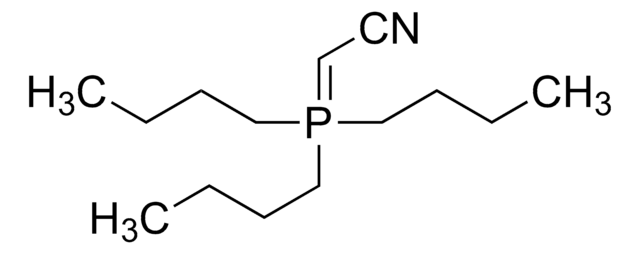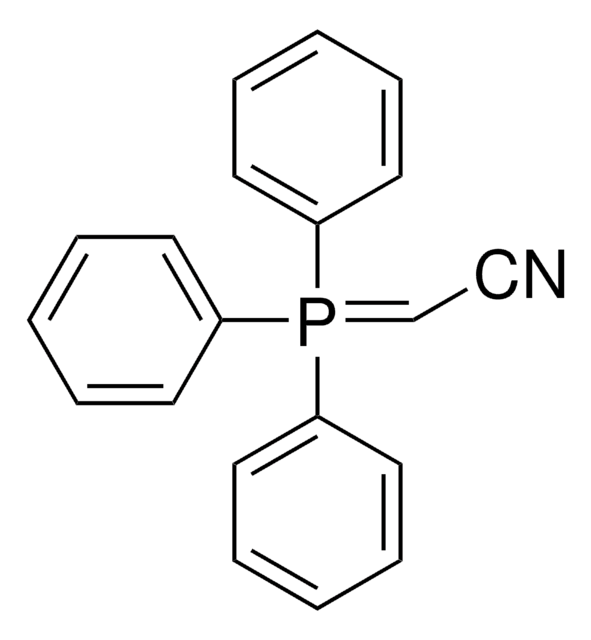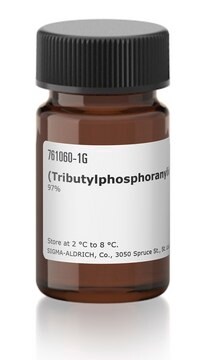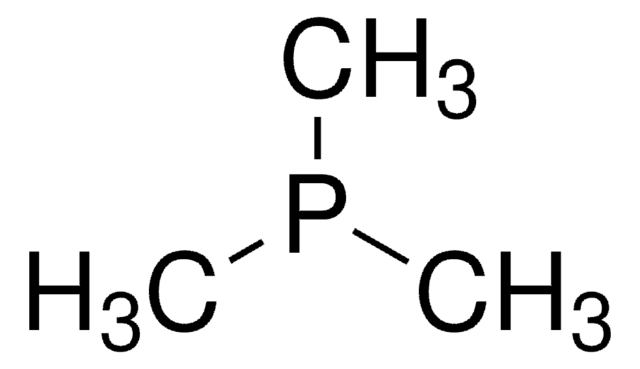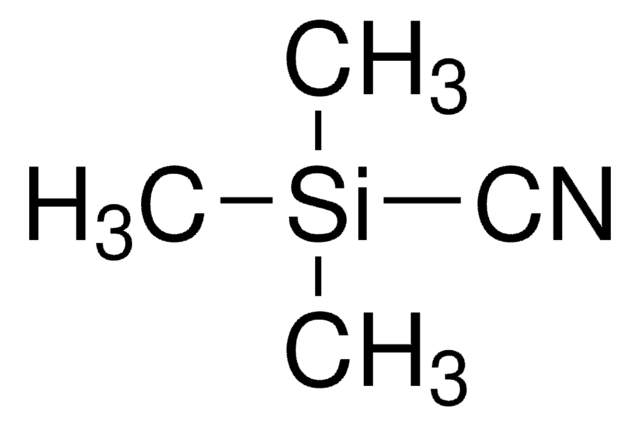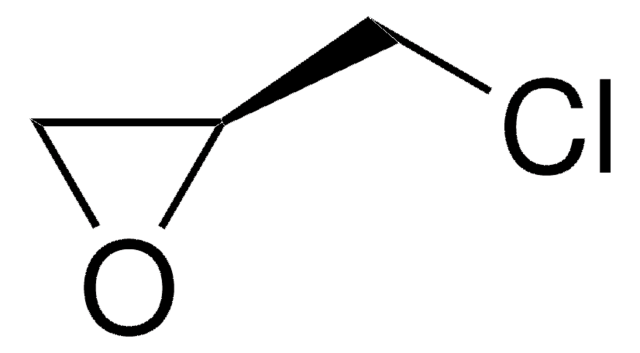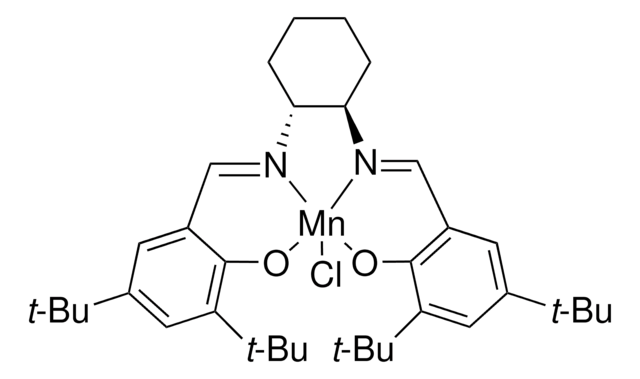752940
(Trimethylphosphoranylidene)acetonitrile solution
0.5 M in THF
Synonym(s):
CMMP, Cyanomethylenetrimethylphosphorane solution
Sign Into View Organizational & Contract Pricing
All Photos(1)
About This Item
Empirical Formula (Hill Notation):
C5H10NP
CAS Number:
Molecular Weight:
115.11
MDL number:
UNSPSC Code:
12352000
PubChem Substance ID:
NACRES:
NA.22
Recommended Products
form
liquid
Quality Level
concentration
0.5 M in THF
density
0.896 g/mL at 25 °C
functional group
nitrile
phosphine
storage temp.
2-8°C
SMILES string
CP(C)(C)=CC#N
InChI
1S/C5H10NP/c1-7(2,3)5-4-6/h5H,1-3H3
InChI key
KJFJIEHJCVSAKJ-UHFFFAOYSA-N
General description
(Trimethylphosphoranylidene)acetonitrile is a reagent generally employed in the Wittig olefination of less reactive carboxylic acid compounds like esters, N-Boc lactams, lactones, and imides to give α,β-unsaturated nitriles. It is also used as an alternate reagent for Mitsonobu reaction by replacing DEAD/PPh3 for the alkylation of C-H and N-H bonds.
Other Notes
If precipitate is observed, warm gently to resolubilize
Signal Word
Danger
Hazard Statements
Precautionary Statements
Hazard Classifications
Acute Tox. 4 Oral - Carc. 2 - Eye Irrit. 2 - Flam. Liq. 2 - STOT SE 3
Target Organs
Respiratory system
Supplementary Hazards
Storage Class Code
3 - Flammable liquids
WGK
WGK 3
Flash Point(F)
-5.8 °F - closed cup
Flash Point(C)
-21.0 °C - closed cup
Choose from one of the most recent versions:
Already Own This Product?
Find documentation for the products that you have recently purchased in the Document Library.
Cyanomethylenetrimethylphosphorane, a powerful reagent for the Wittig olefination of esters, lactones and imides
Tsunoda T, et al.
Tetrahedron Letters, 41(2), 235-237 (2000)
Therapeutic microparticles functionalized with biomimetic cardiac stem cell membranes and secretome.
Junnan Tang et al.
Nature communications, 8, 13724-13724 (2017-01-04)
Stem cell therapy represents a promising strategy in regenerative medicine. However, cells need to be carefully preserved and processed before usage. In addition, cell transplantation carries immunogenicity and/or tumourigenicity risks. Mounting lines of evidence indicate that stem cells exert their
Our team of scientists has experience in all areas of research including Life Science, Material Science, Chemical Synthesis, Chromatography, Analytical and many others.
Contact Technical Service